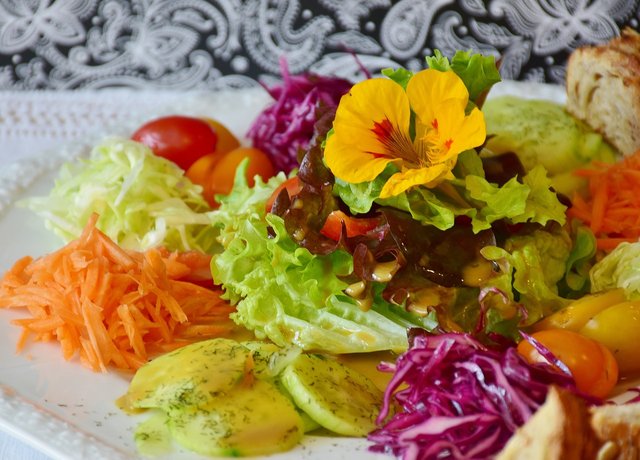
We know what you're thinking: How can eating a salad, of all things, make you happier? A few wilted greens drenched in dressing don't exactly excite the senses. Focusing on brain health essentials is the key to being a happy person; your brain is an organ, after all, and fuelling it with nutritious staples may not only sustain cognition over time but also improve your emotions in the long run.

Furthermore, this is far from a drab, depressing salad. Instead, Amen advertises a thick, vibrant bowl of vegetables picked for their mood-boosting properties. We break out his everyday routine in this article.
Salad of a neuroscientist's choice for a good mood!
Every great salad starts with a good foundation, and for brain health, dark, leafy greens are a fantastic choice (like spinach, kale, arugula, or any of the greens listed here). Each of these foods is high in lutein and beta-carotene, both of which have brain-boosting properties. In fact, one research revealed that people who ate at least one serving of leafy green vegetables every day had brains that were 11 years younger than they actually were, compared to those who ate similar greens just seldom. The high amount of antioxidants (such as lutein, beta-carotene, and alpha-tocopherol [aka, vitamin E]) in these greens, according to the experts, is what makes them so brain-healthy.
In terms of toppings, Amen believes that the more vibrant your salad is, the better. He continues, "I had a huge salad for lunch with red and orange bell peppers, cucumbers, and olives." Each of them has its own set of health advantages (red bell peppers, for example, are high in antioxidants like beta-carotene and lycopene, as well as vitamin C), but feel free to use any veggies you have on hand. They'll almost certainly have vitamins and minerals that are beneficial to the brain.
Finally, Amen recommends adding a source of omega-3 fatty acids to your greens: "I'm a huge supporter of healthy, sustainable fish strong in omega-3 fatty acids," he adds, adding that fatty-acid-rich olive oil, nuts, and seeds are also high in omega-3 fatty acids. "My favorite nut is a walnut," he continues, "because it resembles a brain and is high in omega-3 fatty acids." "And my favorite seeds are pumpkin seeds, since an amino acid called tyrosine has been discovered to improve dopamine availability in the brain," he says.
To that end, top your brain-healthy salad with a serving of wild-caught salmon or a sprinkling of chopped walnuts or pumpkin seeds for additional crunch, then drizzle with olive oil. "Putting it on salads may be really therapeutic and beneficial," he says.